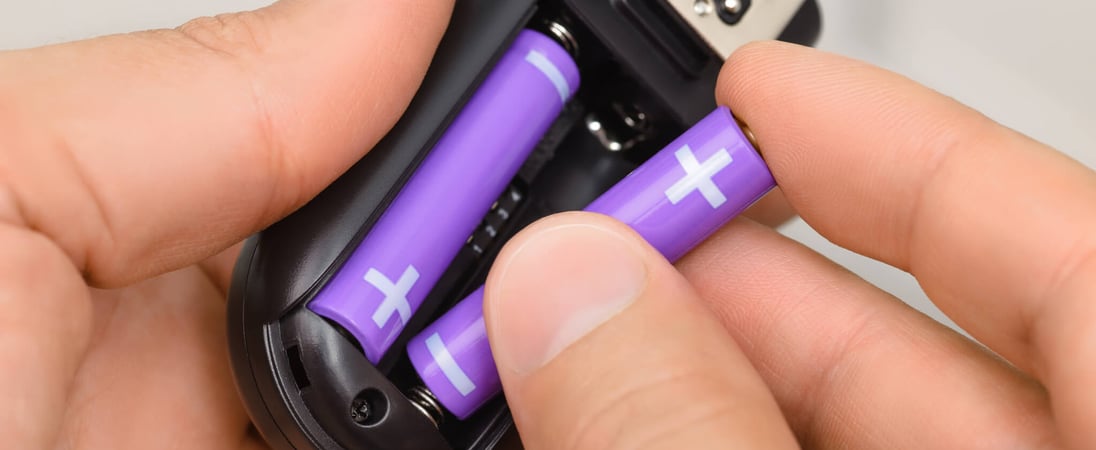
National Battery Day
In the hustle and bustle of our daily lives, it’s easy to overlook the small things that keep our world running smoothly. One such unsung hero is the humble battery.
From powering our smartphones and laptops to enabling the rise of electric vehicles and renewable energy storage, batteries play a crucial role in modern life.
So important is this role that there’s a day dedicated to celebrating it — so get ready for National Battery Day!
How to Celebrate National Battery Day
Celebrating National Battery Day can be both fun and educational. Here are some tips, tricks, and suggestions on how to mark this day:
Learn about Batteries
Use this day as an opportunity to learn more about the different types of batteries, their uses, and the science behind how they work.
There are numerous online resources and tutorials available that explain the chemistry of batteries and how they store and release energy.
Recycle Old Batteries
Batteries should not be thrown away with regular trash as they contain materials that can be harmful to the environment.
Use National Battery Day as a reminder to properly recycle your old batteries. Many local waste management facilities and electronics stores offer battery recycling services.
Spread the Word
Share information about National Battery Day on your social media platforms. Use hashtags to join the wider conversation about the importance of batteries and the need for proper battery recycling.
Support Battery Research
Consider donating to organizations that are conducting research into more efficient and environmentally friendly battery technologies. Your support could help drive the next big breakthrough in battery technology.
Appreciate the Role of Batteries in Your Life
Take a moment to acknowledge the many ways batteries impact your daily life. From the alarm clock that wakes you up, the smartphone that keeps you connected, to the electric car that gets you to work – batteries make modern life possible.
Visit a Battery Manufacturing Facility or Museum
If there’s a battery manufacturing facility or a science museum near you, consider taking a tour to learn more about the production process and the history of batteries.
Educate Others
If you’re a teacher or parent, use this day as an opportunity to teach children about the importance of batteries and the need for recycling. There are many fun and educational activities related to batteries that you can do with kids.
History of National Battery Day
National Battery Day is celebrated on this day that was chosen for its significance in the history of battery development.
This day marks the birthday of Alessandro Volta, an Italian physicist and chemist born in 1745, who is credited with inventing the electric battery. His pioneering work laid the foundation for the development of batteries and their subsequent role in powering our world and accelerating decarbonization efforts.
The electric battery invented by Volta, known as the voltaic pile, was the first device capable of providing a steady, lasting current of electricity.
This invention was a major breakthrough in the field of science and paved the way for countless technological advancements. Today, batteries come in many shapes and sizes, from tiny button cells used in watches to large battery packs that power electric vehicles.
National Battery Day FAQs
What is the “Baghdad Battery,” and how does it relate to battery history?
The “Baghdad Battery” refers to artifacts discovered near Baghdad, Iraq, dating back to around 250 BCE.
These clay jars contained a copper cylinder and an iron rod, suggesting they might have been ancient galvanic cells used for electroplating or other purposes.
While their exact function remains debated, they highlight early experimentation with electrochemical energy.
How did Benjamin Franklin influence the naming of batteries?
Benjamin Franklin conducted experiments with Leyden jars, early devices for storing static electricity.
He coined the term “battery” to describe a series of connected jars, likening them to a battery of cannons. This terminology persists today for interconnected electrical cells.
Are there any myths or misconceptions about batteries?
A common misconception is the “memory effect,” which suggests rechargeable batteries lose capacity if not fully discharged.
This issue was mainly linked to nickel-cadmium batteries. Modern lithium-ion batteries rarely experience this, making the concern largely outdated.
How have batteries been used in unusual or quirky ways?
In the 19th century, electric belts claimed to cure ailments using battery-generated currents. Though these devices lacked scientific credibility, they reflect the imaginative applications of early battery technology.
What role have batteries played in space exploration?
Batteries power spacecraft and instruments during space missions. Apollo lunar missions relied on silver-zinc batteries for life support and communications.
Today, advanced battery technology enables longer, more complex space explorations.
What environmental impact do batteries have, and how can it be reduced?
Improper disposal of batteries can release harmful materials like lead and cadmium, contaminating the environment.
Recycling programs help recover materials and prevent pollution. Many campaigns encourage proper disposal to protect ecosystems.
How has battery technology evolved to power modern innovations?
The transition from lead-acid to lithium-ion batteries has revolutionized technology.
Lithium-ion batteries are lighter, hold more energy, and recharge faster. This progress fuels electric vehicles, portable electronics, and renewable energy systems.
What fun facts highlight the importance of batteries?
A fully charged battery takes 50 times more energy to produce than it can deliver.
Additionally, nickel-cadmium from one phone battery can pollute over 600,000 liters of water if improperly discarded.
How did ancient cultures harness natural electricity before modern batteries?
Ancient cultures may have experimented with natural electricity using materials like amber and fur to generate static charges.
For example, early Greek philosophers noted amber’s ability to attract lightweight objects when rubbed.
This understanding of natural electricity laid the groundwork for future innovations like batteries.
Are there any cultural superstitions or beliefs related to batteries?
In some cultures, drained or malfunctioning batteries are seen as signs of bad luck or negative energy.
For instance, some believe that rapidly depleting batteries in phones or gadgets indicate a spiritual presence nearby, especially in haunted locations.
While purely anecdotal, these beliefs add an interesting cultural angle to battery usage.
Also on ...
View all holidaysNational Drink Wine Day
Raise your glass to a delicious beverage that pairs well with a romantic dinner or a fun night out with friends!
National Eat Ice Cream for Breakfast Day
Savoring frozen delights at sunrise to honor young fighters, uniting with sweet compassion for a vital cause.




